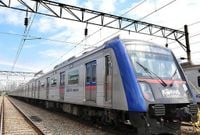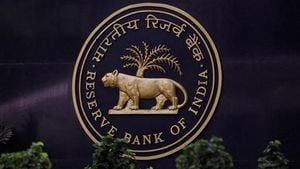In response to the devastating wildfires that have ravaged Gyeongsangbuk-do Province, Mercedes-Benz has stepped up to provide critical emergency relief, establishing a fund of 5 million won ($4,000) aimed at supporting affected residents and restoring the natural environment. The wildfires, which have caused significant destruction, particularly in areas like Uiseong, Ulsan, Ulju, Andong, and Sancheong, have prompted the company to take swift action to aid recovery efforts.
The Mercedes-Benz Social Contribution Committee, recognizing the urgency of the situation, has committed to using the funds for various initiatives aimed at stabilizing the lives of those impacted and restoring the forests that have been lost to the flames. Matthias Weitl, chairman of the Social Contribution Committee, expressed his condolences to those who have lost their homes and emphasized the need for both immediate and long-term restoration efforts. “I hope you can return to your peaceful daily life,” he stated, highlighting the company's dedication to supporting the recovery process.
This recent initiative is not the first time Mercedes-Benz has intervened in the wake of a natural disaster. In 2010, during a large-scale forest fire in Gangwon-do and Uljin, Gyeongbuk, the company provided emergency funding of 2 billion won ($1.6 million), which was effectively utilized for the creation of a firebreak forest in Gangneung and the restoration of Dohwa-dongsan in Uljin. Such consistent disaster response efforts have significantly bolstered the company's credibility and reputation within the community.
Moreover, the importance of private sector involvement in disaster recovery has never been more crucial. As natural disasters become more frequent, the solidarity and proactive measures taken by corporations like Mercedes-Benz are essential. This support is viewed not merely as financial assistance but as a demonstration of corporate social responsibility and a commitment to the well-being of the communities they operate in.
In addition to corporate efforts, the Korea Railroad Corporation (Korail) has also announced measures to assist in the recovery from the wildfires. On March 27, 2025, Korail revealed that it would fully reduce train fares for volunteers engaged in forest fire damage recovery activities throughout Gyeongsangbuk-do and Gyeongnam. Volunteers can benefit from this fare reduction on all trains, including KTX, traveling to and from designated disaster areas, with the exception of metropolitan trains.
To qualify for the fare reduction, volunteers must present a confirmation card issued by local volunteer centers. This initiative aims to encourage more individuals to participate in recovery efforts, making it easier for them to travel to affected areas. Korail President Han Moon-hee stated, “We will help residents affected by the sudden forest fire recover their daily lives and actively participate in supporting the restoration of the affected areas.” He emphasized the company’s commitment to monitoring safety along the railway tracks, particularly in light of the ongoing fire threat.
Korail is enhancing real-time monitoring of its CCTV systems to keep a close watch on the situation and ensure the safety of train operations. The proactive measures taken by Korail underscore the essential role that public transportation plays in disaster recovery, particularly in facilitating volunteer efforts.
As the wildfires continue to affect communities in Gyeongsangbuk-do, the combined efforts of private companies like Mercedes-Benz and public entities like Korail highlight a growing recognition of the need for collaborative recovery initiatives. The emphasis is not solely on financial contributions but also on fostering a culture of community support and resilience.
In a time when many are looking for ways to contribute, the actions of these organizations serve as a compelling call to action, encouraging others to join in the recovery efforts. As the region begins to recover, the hope is that these initiatives will pave the way for a more robust disaster response framework, one that integrates the strengths of both the corporate and public sectors.
The wildfires in Gyeongsangbuk-do have not only caused immediate devastation but also raised questions about long-term environmental impacts and recovery strategies. Moving forward, the commitment shown by companies and public organizations alike will be critical in ensuring that communities can rebuild and thrive once again.
As the situation develops, both Mercedes-Benz and Korail's responses will likely set a precedent for how corporations and public entities can work together in future disaster scenarios, reinforcing the idea that collective action is essential in overcoming the challenges posed by natural disasters.





